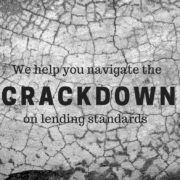
Saying no to family is always difficult. But if a family member or friend asks you to become a loan guarantor, it always pays to think carefully before signing on the dotted line.
Being a co-borrower or guarantor on a loan certainly has its benefits.
For example, by acting as a guarantor you can help your child buy a home without the need for a deposit – eliminating years of needlessly paying rent.
Yet the risks of not repaying back loans are real, and we’ll go through some of them below.
But first, what is a co-borrower? And what’s a guarantor?
You are a co-borrower if you sign a loan with someone else. Usually both yourself and the other co-borrower are jointly and individually liable for the debt.
If the person you borrow the money with is unable to pay their share of the loan, you will be responsible for repaying the full amount outstanding.
A guarantor on a loan is someone who agrees to be accountable (legally liable) for the repayment of the borrower’s debt in case of default.
So, if your friend or family member can’t – or won’t – pay, then you’ll have to repay the borrowed amount.
The main difference is that co-borrowers are each fully responsible for repaying a loan, whereas guarantors only become responsible if and when the borrower defaults.
Think twice about signing
Being a co-borrower or guarantor can be chancy business. There is no direct financial reward for being a guarantor or co-borrower but there are real risks involved.
As a guarantor for someone else’s loan you are responsible for making the repayments if the borrow can’t.
Here are the main three risks:
1. It could affect your credit rating: If the borrower is unable to make repayments it’s in your best interest to step up and cover repayments. If you’re unable to cover the payments to the loans, then you run the chance of defaulting on the loan and having that appear on your credit report.
2. Future credit: If you apply for credit down the line, the loan that you co-signed for will have to be included in your liabilities as an ongoing commitment. Even though you may not be the one making repayments on the loan, the lender still has the right to assess the amount.
3. Personal relationships: If you do end up having to make repayments on the loan, it could strain your relationship with the borrower. Even if you have a personal fall out with the borrower, you are still legally liable for the loan. So always consider what would happen if the borrower did default on the repayment plan and how you would deal with that situation.
Seek advice
When determining if being a co-signer is right for you, there are always benefits and drawbacks to consider.
As it’s not a decision that should be taken lightly, seeking our independent advice might be your best course of action. So head straight to your Mortgage Broker and they will have all your answers.
Disclaimer: The content of this article is general in nature and is presented for informative purposes. It is not intended to constitute financial advice, whether general or personal nor is it intended to imply any recommendation or opinion about a financial product. It does not take into consideration your personal situation and may not be relevant to circumstances. Before taking any action, consider your own particular circumstances and seek professional advice. This content is protected by copyright laws and various other intellectual property laws. It is not to be modified, reproduced or republished without prior written consent.










